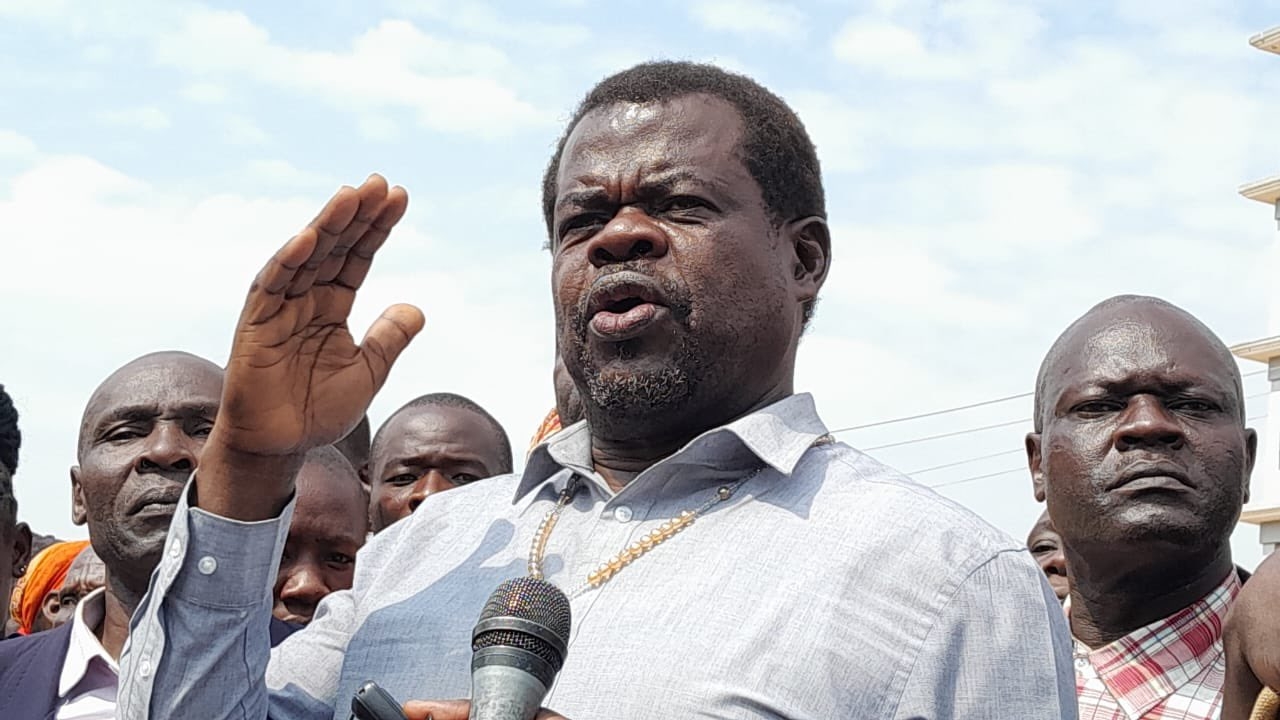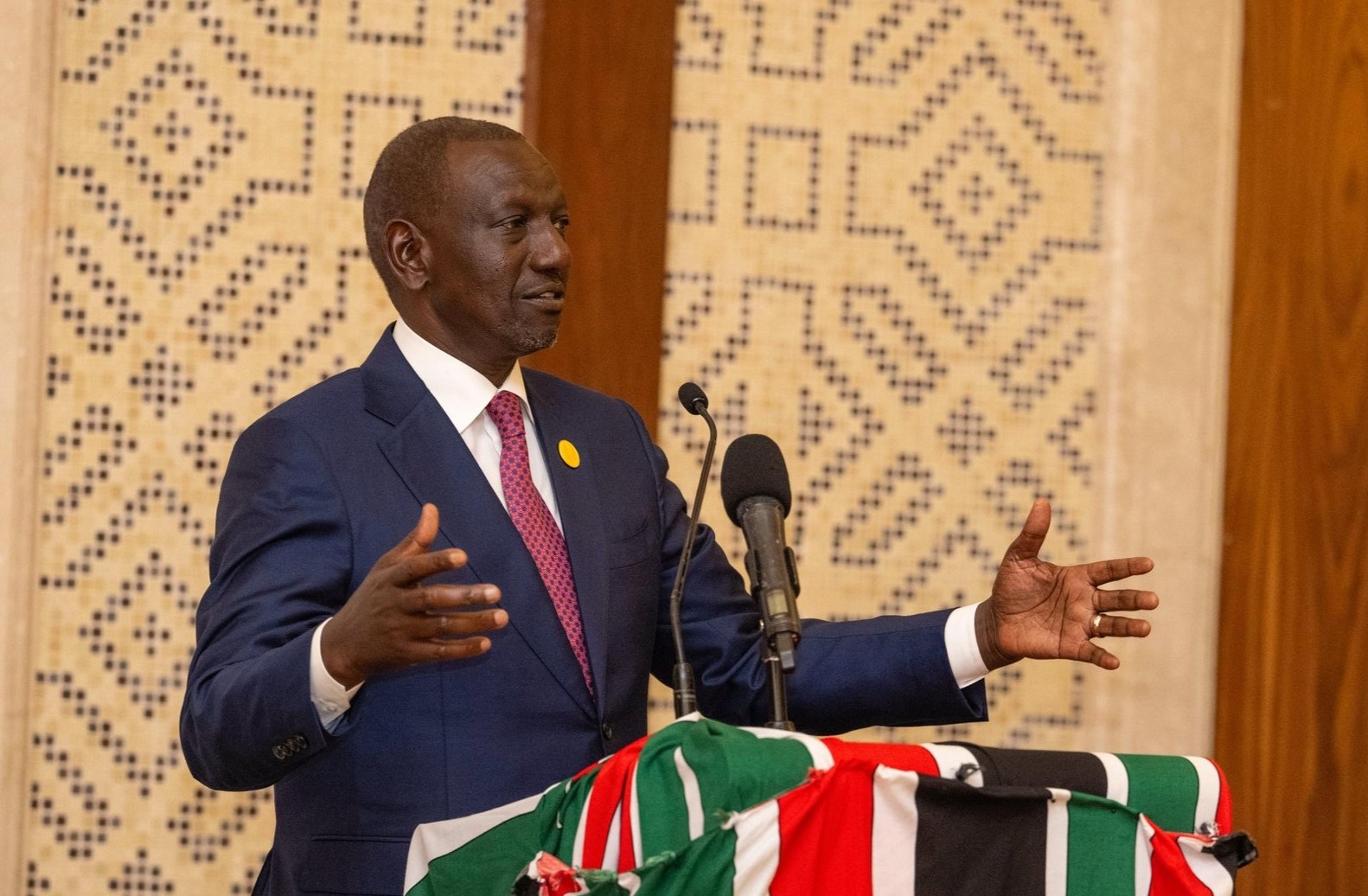Governor Paul Otuoma has denied claims that the ongoing reorganisation of towns is meant to undermine traders.
The governor said restructuring of mainly Busia and Malaba towns aims at ensuring the business is conducted in an orderly manner while guaranteeing traders’ safety.
Busia and Malaba are the county’s main towns raking in approximately Sh5 billion, each, yearly, for the national government in cross-border trade between Kenya and her landlocked neighbours.
There are, however, thousands of informal traders in the two towns supporting the county government in taxes.
The county in January embarked on an ambitious plan to reorganise Busia and Malaba, a development that led to the demolition of hundreds of structures particularly those located near the main roads.
The exercise attracted widespread condemnation with critics describing the order by Lands, Housing and Urban Development chief executive Peter Odima as a ‘painful and costly’ decision.
But Otuoma, speaking on June 20, while opening Soko Posta market in Busia town said although the demolition came with costs on traders, the bringing down of buildings will help improve working environments for the affected traders.
“It is our duty to make sure that our markets work, and our markets cannot work when we undermine,” the county chief said.
“We are going to support business. I know we are investing a lot of effort in trying to reorganise Busia town and there are those who feel that we are hurting them, yet that is not the case. What we are doing is giving you better ways to do your business.”
When the demolitions began in January, Odima said the county government had only one option; to knock down structures that he said were choking Busia towns.
“Every development venture has some pain component hence Busia county especially the urban areas must transform no matter the pain,” the CEC said.
“We must bring some order in the county.”
During Soko Posta’s opening, the governor ordered all residents in Busia town to buy particularly foodstuffs at the newly launched market.
There are efforts, the governor said, to modernise other assistant markets within the town in a move he said will ensure traders are confined in safe zones.
Soko Posta which cost Sh40 million to put up is an initiative of the county government, the national government, the Ministry of East African Community Affairs, TradeMark Africa and development partners.
“From today, we want everyone to shop from this market. We must promote business in Soko Posta because it is a safe zone," Otuoma said.
The market that opened doors to women whose businesses were hit by the Covid-19 pandemic has clean running water, an ablution block, space for breastfeeding women and a parking yard.
Its construction kicked off in July 2021, as part of the Safe Trade Emergency Facility that TradeMark Africa implemented together with the county government of Busia with funding from Canada, Ireland, the European Union and Denmark.
The outbreak of the Covid-19 pandemic in 2020 took a huge toll on international and local trade and informal cross-border traders, particularly women, were hard hit.
The effects of the pandemic official data shows led to a drastic reduction in business operations along the border with traders recording up to 90 per cent income losses that resulted from stringent government-enforced restrictions of social distancing to combat the spread of the virus.
With the new market now open, Otuoma said cross-border women traders will enjoy trading in a safe location away from the confusion brought by traffic specifically trucks ferrying goods across the border.
BOOST AGRICULTURE
The governor at the same time said one of the sectors his administration will focus on to uplift is the agriculture industry.
“We want to make sure that we are food secure. We want to make sure that we have economic activities that are going to take a large number of our people out of poverty,” the governor said.
“And on that basis, we are going to organise farmers through cooperatives in the wards and we want to help them to be more productive and also do value addition, come up with aggregation systems to market what they are going to produce, and reduce post-harvest loses because in this county go up to 50 and 60 per cent of the harvest is lost and you can imagine the frustration.”
During his inauguration in September last year, the county chief said Busia, has the potential of becoming a food basket in the Western region and will endeavour to produce not only for consumption but also for sale.
Otuoma said his focus, for the five years running to 2027 will be to ensure Busia becomes food secure.
“We are trying our best as a county government to improve agriculture and avail loans to enable business people to trade through the Department of Trade so that we have vibrant cooperatives which when we give money will help alleviate poverty,” he said.
“Not long ago, we used to have granaries in our homes because there was a lot of food in homes. All homes used to have a granary and a food store. Nowadays these things are no longer there and you wonder what happened.
“We need to come up with innovative and unique solutions to the challenges that we face today. We must put our people back to productivity. We must ensure that we give our people technologies that help us solve our problems. And this is what the county government in collaboration with the national government are trying to do.”
The county chief also said the lack of properly organised purchasing systems, locally, makes farmers give up on growing certain crops like cotton because farmers struggle for months to grow the crop yet it takes more than a year for the growers to get paid.
“We are also looking at organising the markets so that what people are able to produce, what they can’t consume, we add value and find a market in areas where there is need.”
The governor also urged cross-border traders in the county to take advantage of their proximity to neighbouring Uganda to conduct business and reap benefits that come with international trade.













